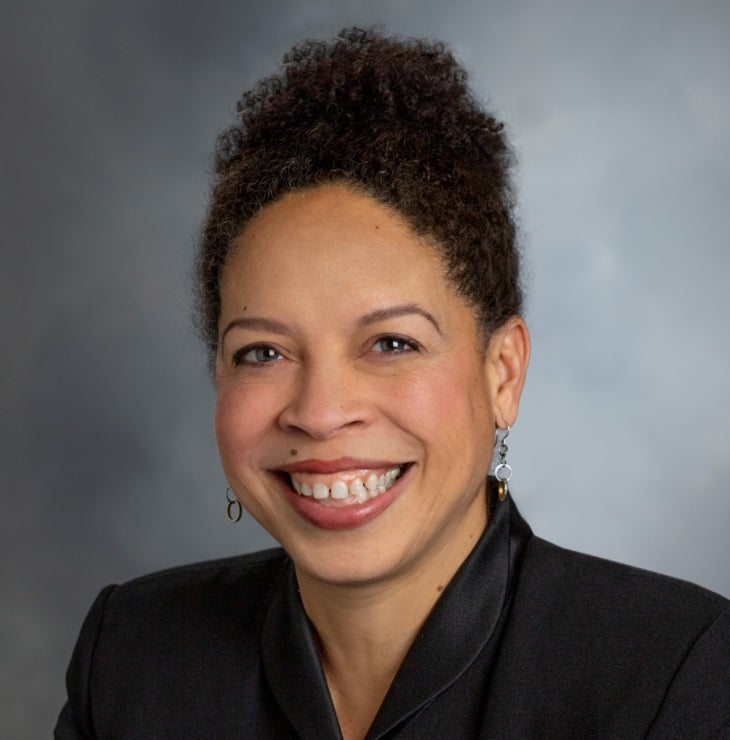As the U.S. population and workforce has grown more diverse, DEI has become a bigger part of conversations about corporate culture.
But for some, the idea of talking openly about DEI in the workplace can still be controversial. While the majority of our survey respondents said their agencies are focusing on efforts to make their agency cultures more inclusive, some were apathetic about the term “diversity, equity and inclusion.”
Some of the apathy seems to come from misconceptions of what DEI entails. A few of the survey respondents expressed worry that DEI puts too much focus on employees’ differences instead of focusing on treating everyone the same. But acknowledging and celebrating the different backgrounds of employees can make agency cultures fairer and more inclusive.
Some definitions
Conversations and activities around DEI cover a broad spectrum of ideas and aspects of company culture. Some companies add a “B” after DEI, which stands for belonging. DEI requires everyone and involves everyone.
Diversity, equity, inclusion and belonging all intersect and overlap, but it can be helpful to define terms.
Diversity is the representation of different people in an organization. Aspects of diversity include differences in race, ethnicity, gender identity, sexual orientation, physical ability, religious belief, socioeconomic background, heritage, life experience and more. No two people have the same background or experiences. If there is more than one person in your agency, you have diversity in your agency, whether or not the differences are visible.
Equity is providing fair opportunities for all employees, while taking systemic barriers and individual needs into account. For example, equity could look like offering accommodations and resources to a team member with a disability.
Inclusion is ensuring that every team member has a seat at the table and feels valued for their unique contributions.
Belonging is the feeling employees have that they are safe to be their full selves, and that they are valued for who they are, not just what they do.

No matter your role, the question is not if DEI is involved in your work, it’s how.
As long as there are people, the challenges and opportunities of DEI are happening, whether we’re acknowledging them or not.
In the new era of work, the way your insurance agency approaches DEI can prove a help or a hindrance to your workplace culture and business goals.
Many agencies are currently engaging with DEI work, or believe they should soon
Our research found that growth-focused agencies are more likely than other agencies to be actively engaging in diversity, equity and inclusion work.
For example, 51% of growth-focused agencies are focused on diverse recruiting and hiring, compared with just 33% of agencies that are aiming for slow and steady growth. Growth-focused agencies are also more likely to include breaking into new marketing segments (such as younger consumers or Hispanic markets) in their 5-year growth plan (41% of growth-focused agencies vs. 24% of slow and steady growth agencies).
However, it’s not just growth-focused agencies that are engaging with DEI. Among all agencies we surveyed, the steps being taken to improve workplace culture fall under the umbrella of diversity, equity, inclusion and belonging, even if agencies are not using those terms.
In fact, our research found that nearly 80% of all the agencies we surveyed that have seven or more staff members are currently or believe they should be engaging in DEI activities. These activities include creating environments where the team can be their authentic selves, managing cross-generational issues, engaging staff in DEI conversations and more.
How agencies are engaging with DEI
DEI is good for culture and for business
Investing in DEI can help businesses foster positive workplace cultures where employees of all backgrounds can thrive. It’s also good for business. Studies show that companies with more diverse workforces outperform less diverse companies in profitability and are better positioned to innovate, enter new markets and attract top talent.
Employees want to work for companies that prioritize DEI. A survey by Glassdoor found that more than 3 in 4 employees and job seekers said a diverse workforce is an important factor when deciding where to work. Gen Z job seekers are especially looking for companies that are taking action to incorporate DEI into their cultures. And with Gen Z making up an increasing percentage of the workforce, it’s essential for companies to create cultures that attract the next generation of talent.
However, it’s not enough to just get more diversity at the table. Agencies must also make sure that all employees have equal opportunities to contribute and grow their careers.
Investing in employees is a worthwhile payoff that can give agencies more options for perpetuation and agency growth. For example, women currently make up only about one-third of agency principals and owners, but recent Liberty Mutual and Safeco research on women in independent insurance agencies found that more than half of female frontline staff under the age of 50 were interested in becoming a partner in their agency. However, women were less likely than men to say that their agency offers growth and mentorship opportunities.
Investing in DEI can also help agencies break into new markets by building workforces that reflect the communities they serve. The U.S. population is becoming more diverse, and consumers want to work with companies that reflect that diversity. Embracing diversity can help your agency reach more customers and break into new markets.
One example of this is offering materials and service in languages other than English. In our research, 40% of respondents said their agency has staff members that speak a language other than English, but only 21% say their agency is focused on offering service in other languages. However, nearly half of agents younger than 54 believe this needs to be a focus soon. Younger agents are also more likely to say that having a diverse agency staff that reflects the customers should be a focus soon.
